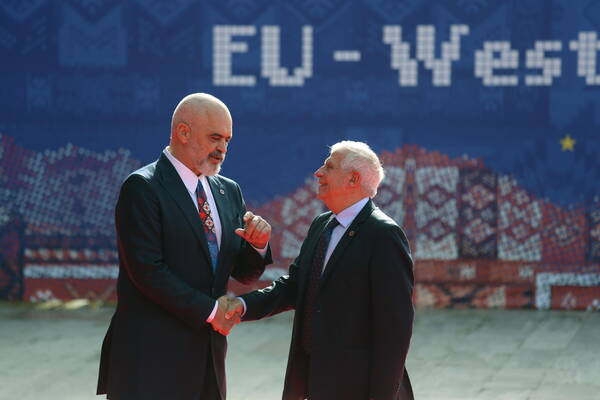Central-East Europe say goodbye to 2022
A year with highs and lows
30 December, 10:21Nevertheless, the area has taken essential steps forward in recent months. These include the EU-Balkan summit held in Tirana in December, a signal given by Brussels to a region still considered strategic. The same is valid in particular fo r Italy, which will be organising a similar meeting in Trieste, in January 2023. Even more significant was the final green light for Croatia's entry into the Schengen area and the eurozone, The country, which joined the EU in 2013, as of January 1, 2023, will join the "club" of fully integrated EU members, including free movement and the single currency.
On the other hand, Romania and Bulgaria could not celebrate the same milestone, held back once again in their ambitions to join the Schengen zone, this time by a veto from Austria, which caused deep bitterness and controversy in Sofia and Bucharest.
However, after the knockout in June, when Bosnia and Herzegovina was 'snubbed' in contrast to Moldova and Ukraine, there was cause for rejoicing in Sarajevo in December as well, with the granting of EU candidate status to the Balkan nation, which nonetheless remains stifled by significant political and institutional crises, as well as weakened by the vague secessionist aspirations of the Bosnian Serbs.
Stalemate, on the other hand, is the watchword for Serbia, which is under pressure from the West to decide on sanctions against its Russian ally. The same is true for Montenegro, which is at a standstill this year in the accession process. In contrast, Kosovo took a step toward Europe, as the country finally received the European okay to abolish the visa regime for Kosovar citizens who want to travel to the EU, a measure that will come into effect in early 2024.
However, Kosovo has also been the epicenter of the most severe crisis ever seen in the Balkans in recent years, once again on the axis with Belgrade. Serbs in northern Kosovo revolted in December, and rising tensions made Europe fear the outbreak of a new armed conflict in the Balkan region, which is also seeing a further increase in migration flows on the Balkan Route. In contrast, another war, the one in Ukraine, continues to cause millions of people to suffer between Kyiv and Kharkiv, to push refugees toward the EU, and reverberate mainly in Ukraine's neighboring countries, such as Moldova, hit by severe blackouts.
Meanwhile, throughout 2022 the whole of Central and Eastern Europe has mobilized to provide military aid to Kyiv. A conflict also has disruptive effects on the economy, throughout the region, with a dramatic rise in inflation and energy costs, an increasingly severe problem threatening the entire region's stability, in particular in EU countries dependent from Russia for energy supply, such as Hungary. Hungary was for months on a collision course with the EU due to Budapest's opposition to the European sanctions against Moscow, considered harmful to the national economy by the government. On the other hand, most of the Central-Eastern European countries, from Poland to the Baltic States, from the first hours of the conflict were sincerely supporting, politically and beyond, Kiev in its struggle to resist Russian aggression. Meanwhile, NATO, which this year has vigorously strengthened its "eastern flank", sent more troops and assets from Romania to Northern Europe. (ANSA).














